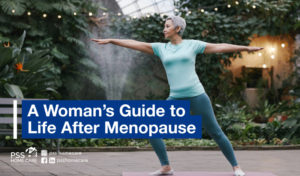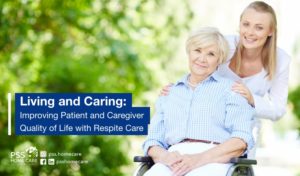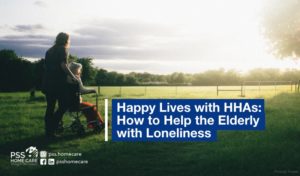A Woman’s Guide to Life After Menopause Menopause, which occurs...
Read More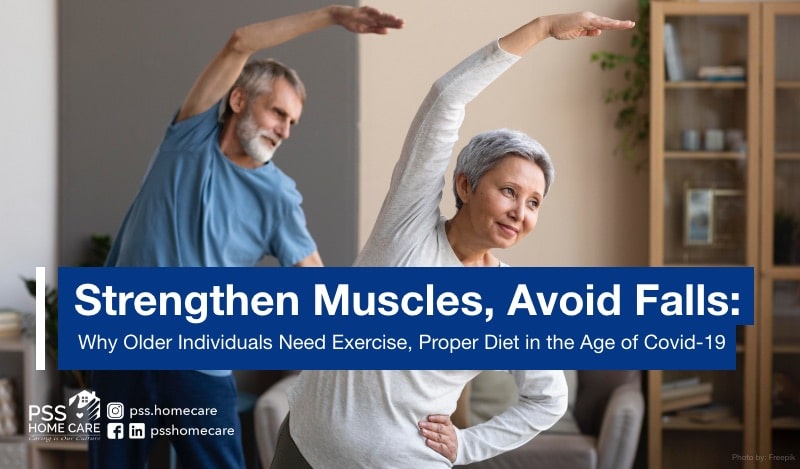
- Neil Reyes
- August 5, 2021
- No Comments
Strengthen Muscles, Avoid Falls:
Why Older Individuals Need Exercise, Proper Diet in the Age of Covid-19

One of Mrs. Baker’s favorite activities is strolling down the park near her home. “She always looks forward to her afternoon walks. Every day at 5 in the afternoon, especially when the weather’s nice, she’ll be out walking,” shared her daughter, Callie.
But when the pandemic hit, Mrs. Baker, like most of the older population the world over, was asked to spend most of her time at home.
“Back then, she was living alone. She wasn’t able to walk outside anymore, and that really took a toll on her health. During our calls, I started noticing that she just wasn’t as chipper as she used to be, too,” Callie said.
The Covid-19 pandemic has effectively forced people all over the world to press pause on their regular activities. During the global health crisis, people have been encouraged to stay indoors to avoid contracting and spreading the disease. For a while, gyms and fitness centers in different parts of the world had to temporarily close their doors, as only essential businesses were allowed to operate.
People stayed at home to stay protected against Covid-19, but in doing so for long periods of time, their physical activities lessened and their sedentary behaviors increased. This, together with dietary changes, can lead to sarcopenia or the loss of muscle mass and the reduction of muscle strength in older individuals.
“After a while, my mom told us how weak she felt. She had trouble going up and down the stairs. There was even one time when she almost fell when she got up from bed. We had her seen by her doctor and after some tests, we found out that she had sarcopenia. That’s when we got her home care assistance. We found out too late that she hadn’t been eating healthily and that she was barely moving at home,” stated Callie.
Dr. Ayam De Leon, PT, DPT, co-founder and owner of Ossining Physical Therapy, states that sarcopenia is not strictly a Covid-19 phenomenon. “The loss of muscle mass and strength is part of the aging process. It’s been around even before the pandemic hit, but the lockdowns and quarantines have really affected the level of physical activity for everyone, especially older individuals. The numbers weren’t great for older individuals before the pandemic started, and now it’s more concerning,” he shared.
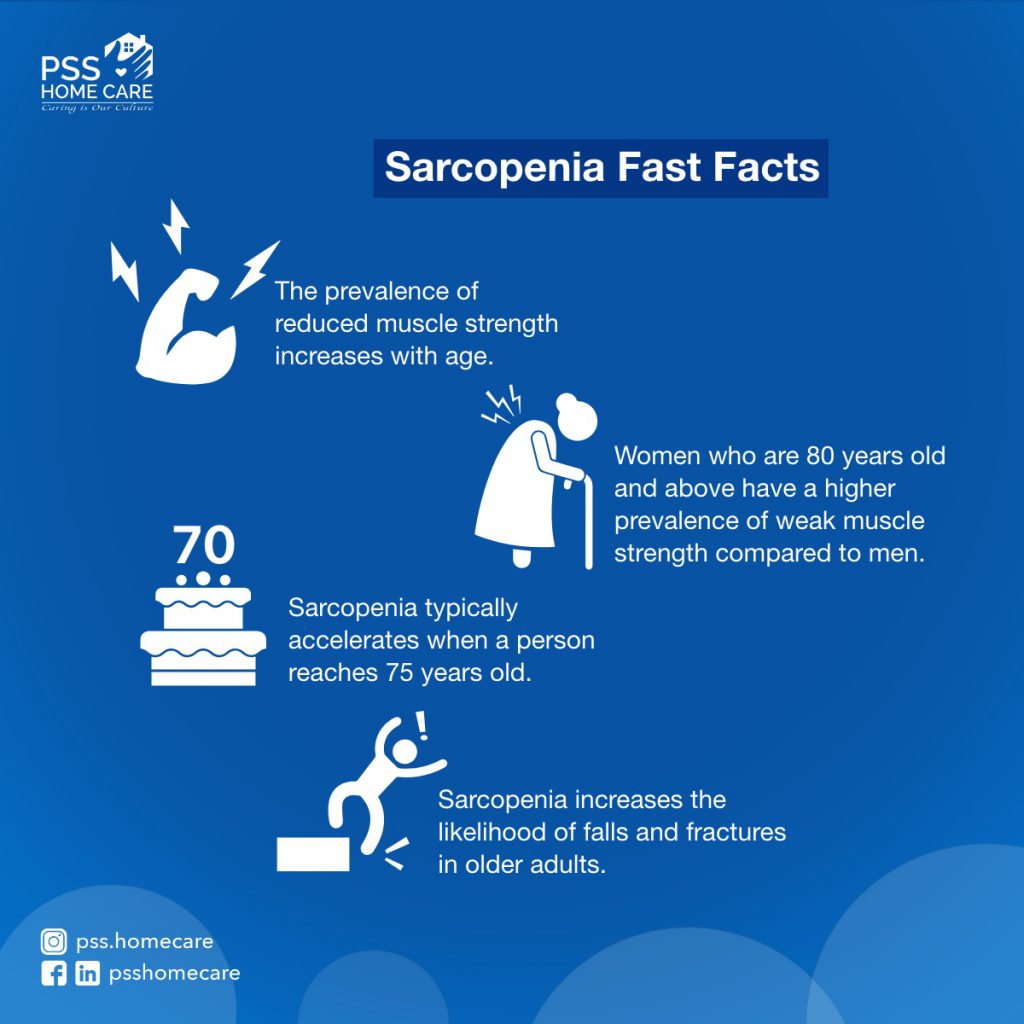
Combating Sarcopenia with Exercise
Currently, there is no FDA-approved pharmaceutical drug to treat sarcopenia. However, a person who has sarcopenia — or a person who is at risk of developing it — can still improve his or her muscle mass and strength through regular physical activity and a proper diet.
“Resistance training works best in combating and preventing sarcopenia in older individuals,” said Ayam. Resistance training involves exercises that are designed to enhance muscular fitness using weights, resistance bands, or a person’s own body weight.
“These exercises also boost balance, coordination, and mobility levels in older individuals, which reduces the risk of falling. It also keeps them living independently,” Ayam added.
The World Health Organization (WHO) recommends at least 150 minutes of moderate-intensity aerobic physical activity or at least 75 minutes of vigorous-intensity aerobic physical activity in a week for older individuals aged 65 and over. They also advise that exercises that can help prevent falls and improve balance must be done three or more days in a week, while muscle-strengthening activities must be done two or more days in a week.
“Aside from improving muscle mass and strength, regular physical activity can do wonders for other health issues, too, such as obesity, arthritis, and even heart ailments,” said Ayam.
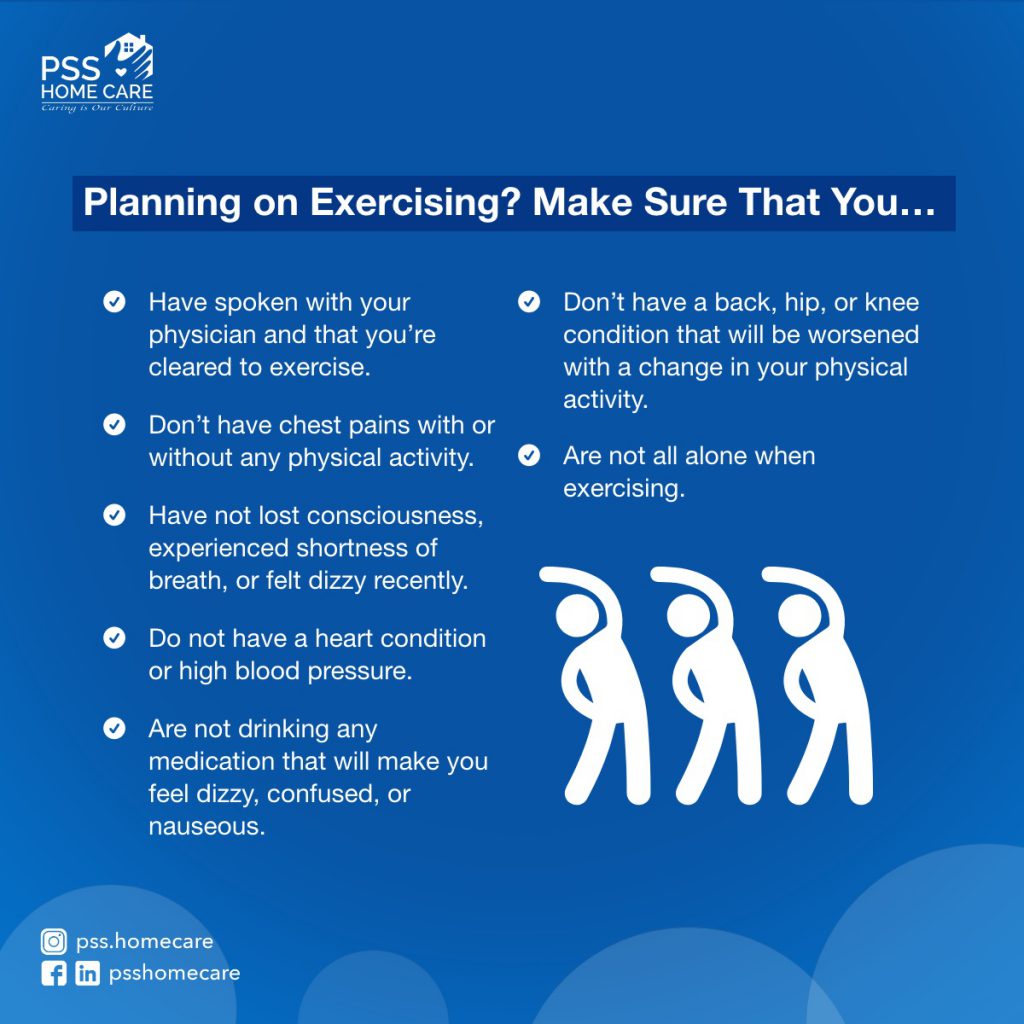
Examples of resistance training exercises for older adults include:
- Squats
- Stretches
- Knee lifts with med ball
- Lat pull with resistance band
- Wall push-ups
- Toe stands
- Bicep curls
- Overhead presses
- Knee extensions
The Other Half of the Equation: A Proper Diet
Regular exercise needs to be paired with a proper diet. Studies show that a protein-deficient diet is associated with muscular decline in older individuals. In fact, a 2017 report states that older individuals who ate the least amount of protein were almost twice as likely to experience walking or climbing difficulties.
Protein, the building block of muscles, is integral to muscular health — and older individuals need to get enough protein regularly. Older adults with sarcopenia need 1.2 to 1.5 g/kg of protein per day. And though protein comes in all shapes and sizes, it’s important to get it from good sources.
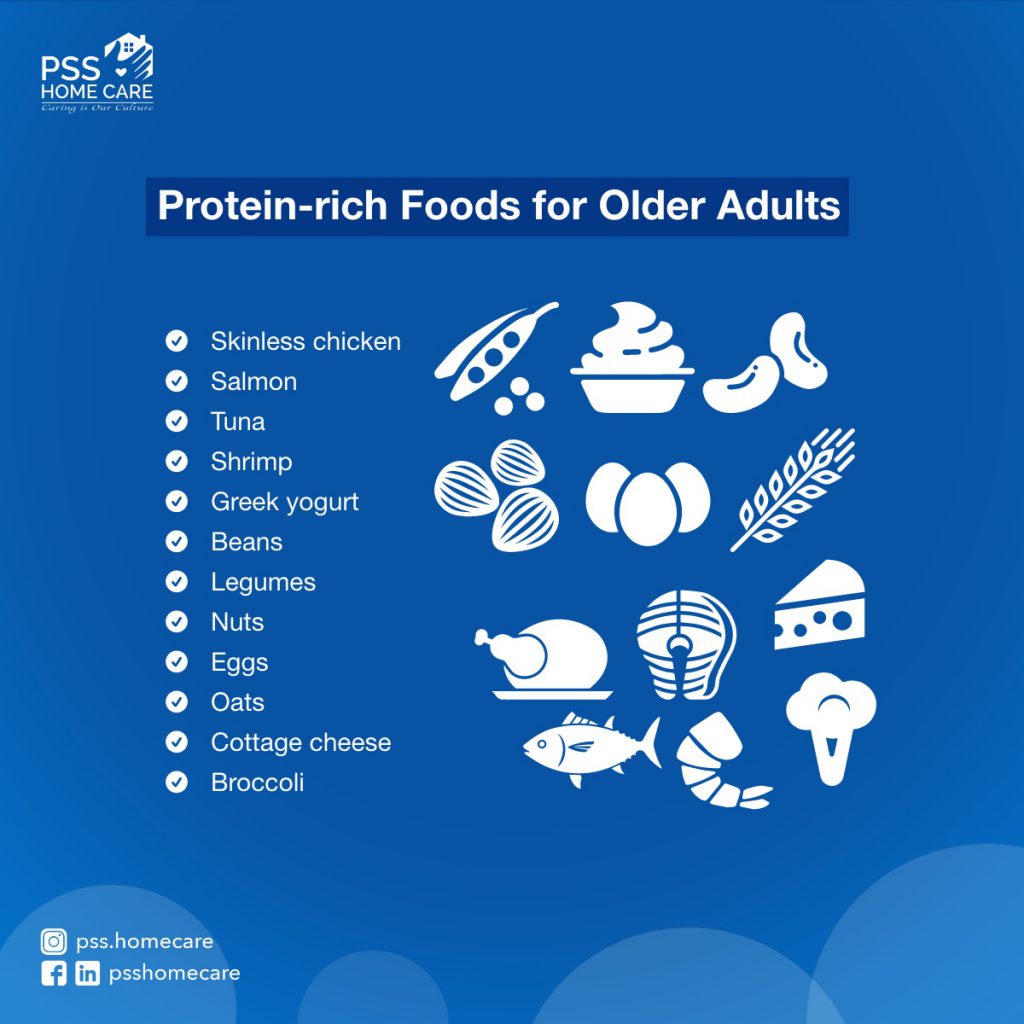
“When we work out and exercise to strengthen our muscles, it’s important to have enough protein in our system. Protein is also good for keeping off weight and lowering blood pressure,” remarked Ayam.
“Regular physical activity coupled with a healthy diet is crucial to keeping older individuals healthy and active,” added Ayam.
Families can also explore going for home care services to make sure that their older loved ones are exercising regularly and eating well at home. “It’s been great. My mom’s now able to take her walks in the park, and needless to say, she just loves that. And now, someone’s always accompanying her, making sure that she’s safe. She’s been gushing about her meals, too, which is just wonderful. I’m just really happy with the attention and care that she’s getting,” remarked Callie.
Caring is our Culture
At PSS Home Care, we provide top-notch assistance to older adults, as well as people living with disabilities, chronic illnesses, or cognitive impairments. Our home health aides help our clients with activities of daily living such as bathing, dressing, and grooming, among many others. They also prepare healthy meals and oversee the administration of prescribed medication. These and more are what make PSS Home Care’s brand of compassionate care exceptional.
For more information about our home care services, contact us at 718-752-9833. We’d be glad to discuss possible care options that best suit your loved ones’ needs today.
For more information about physical therapy services, call Ossining Physical Therapy at 914-382-9301.
Check out our other articles
Monkeypox Overview: What It Is, Who’s At Risk, and What You Need to Know
Monkeypox Overview:What It Is, Who’s At Risk, and What You...
Read MoreLiving and Caring: Improving Patient and Caregiver Quality of Life with Respite Care
Living and Caring: Improving Patient and Caregiver Quality of Life...
Read MoreHappy Lives with HHAs: How to Help the Elderly with Loneliness
Happy Lives with HHAs: How to Help the Elderly with...
Read More
